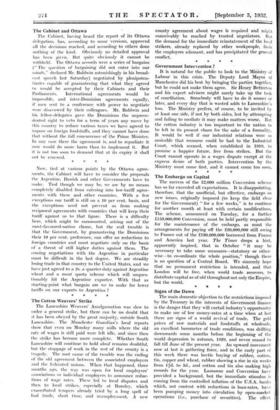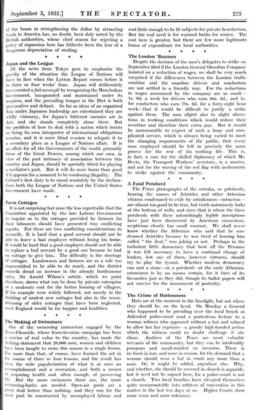* Signs of the Dawn The main domestic objection to
the restrictions imposed by the Treasury in the interests of Government finance is the danger that they will curtail industry's opportunity to make use of low money-rates at a time when at last there are signs of a world revival of trade. The gold prices of raw materials and foodstuffs at wholesale, an excellent barometer of trade conditions, was drifting downwards some months before the beginning of the world depression in autumn, 1929, and never ceased to fall till June of the present year. An upward movement now at last is gathering force, and in the early part of this week there was hectic buying of rubber, cotton, tin, copper and wheat, rubber showing a rise in six weeks from 11d. to 3d., and cotton and tin also making high records for the year. Lausanne and Conversion have provided a background, but the immediate stimulus is coming from the controlled inflation of the U.S.A. banks which, not content with reductions in loan-rates, have been pumping money into circulation by open-market operations (i.e., purchase of securities). The effect of the boom in strengthening the dollar by attracting funds to America has, no doubt, been duly noted by the British authorities, whose chief reason for rejecting a policy of expansion here has hitherto been the fear of a dangerous depreciation of sterling.
* * *































 Previous page
Previous page